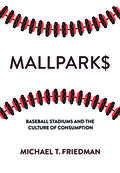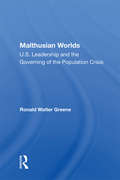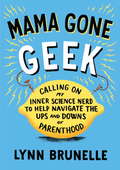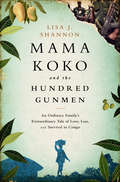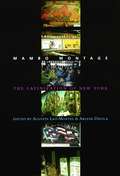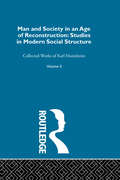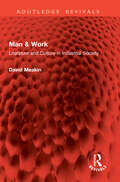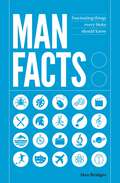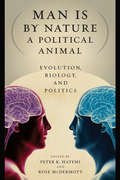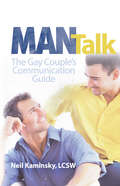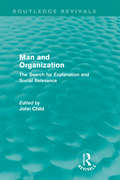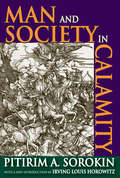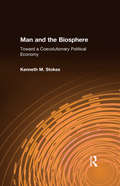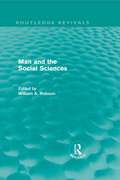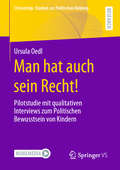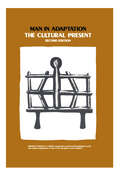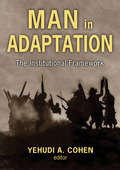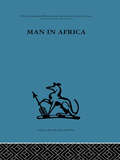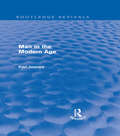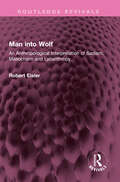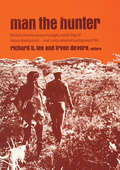- Table View
- List View
Mallparks: Baseball Stadiums and the Culture of Consumption
by Michael T. FriedmanIn Mallparks, Michael T. Friedman observes that as cathedrals represented power relations in medieval towns and skyscrapers epitomized those within industrial cities, sports stadiums exemplify urban American consumption at the turn of the twenty-first century. Grounded in Henri Lefebvre and George Ritzer's spatial theories in their analyses of consumption spaces, Mallparks examines how the designers of this generation of baseball stadiums follow the principles of theme park and shopping mall design to create highly effective and efficient consumption sites. In his exploration of these contemporary cathedrals of sport and consumption, Friedman discusses the history of stadium design, the amenities and aesthetics of stadium spaces, and the intentions and conceptions of architects, team officials, and civic leaders. He grounds his analysis in case studies of Oriole Park at Camden Yards in Baltimore; Fenway Park in Boston; Dodger Stadium in Los Angeles; Nationals Park in Washington, DC; Target Field in Minneapolis; and Truist Park in Atlanta.
Malthus
by Robert J. MayhewThomas Robert Malthus's An Essay on the Principle of Population was an immediate succès de scandale when it appeared in 1798. Arguing that nature is niggardly and that societies, both human and animal, tend to overstep the limits of natural resources in "perpetual oscillation between happiness and misery," he found himself attacked on all sides--by Romantic poets, utopian thinkers, and the religious establishment. Though Malthus has never disappeared, he has been perpetually misunderstood. This book is at once a major reassessment of Malthus's ideas and an intellectual history of the origins of modern debates about demography, resources, and the environment. Against the ferment of Enlightenment ideals about the perfectibility of mankind and the grim realities of life in the eighteenth century, Robert Mayhew explains the genesis of the Essay and Malthus's preoccupation with birth and death rates. He traces Malthus's collision course with the Lake poets, his important revisions to the Essay, and composition of his other great work, Principles of Political Economy. Mayhew suggests we see the author in his later writings as an environmental economist for his persistent concern with natural resources, land, and the conditions of their use. Mayhew then pursues Malthus's many afterlives in the Victorian world and beyond. Today, the Malthusian dilemma makes itself felt once again, as demography and climate change come together on the same environmental agenda. By opening a new door onto Malthus's arguments and their transmission to the present day, Robert Mayhew gives historical depth to our current planetary concerns.
Malthusian Worlds: U.S. Leadership And The Governing Of The Population Crisis
by Ronald Walter GreeneThis book focuses on how the population crisis as a governing apparatus was assembled as a particular form of Malthusian rationality. A central argument is that U.S. leadership in governing the population crisis required both a global and local appreciation of population dynamics.
Malware Detection on Smart Wearables Using Machine Learning Algorithms (Studies in Systems, Decision and Control #549)
by Alvaro Rocha Fadele Ayotunde AlabaThis book digs into the important confluence of cybersecurity and big data, providing insights into the ever-changing environment of cyber threats and solutions to protect these enormous databases. In the modern digital era, large amounts of data have evolved into the vital organs of businesses, providing the impetus for decision-making, creativity, and a competitive edge. Cyberattacks pose a persistent danger to this important resource since they can result in data breaches, financial losses, and harm to an organization's brand.
Mama Gone Geek
by Lynn BrunelleHow do you connect the artsy, science-nerd mom to the art and science of parenting? Lynn Brunelle shares her field trip through pregnancy and parenting, sprinkled with a sparkle of science, in this hilarious and awe-inspiring memoir. With great enthusiasm, Lynn shows how she shares her inner geek--the part of her that is gleefully curious and wide-eyed with wonderment--with her children. For Lynn, science is the stardust that makes common things glow. Why not pass that magic along to the kids? When Lynn brought her passion for science into her parenting, it began to make all the difference to her and her kids. Her heart lifts when her boys are elbow-deep in mud searching for crystals and when she catches them debating whether a chicken is related to a dinosaur. Science isn't just for geeks. It's the future. If you're a parent or planning to become one, it's your future.
Mama Koko and the Hundred Gunmen: An Ordinary Family’s Extraordinary Tale of Love, Loss, and Survival in Congo
by Lisa J. ShannonInternational human rights activist Lisa Shannon spent many afternoons at the kitchen table having tea with her friend Francisca Thelin, who often spoke of her childhood in Congo. Thelin would conjure vivid images of lush flower gardens, fish the size of small children, and of children running barefoot through her family’s coffee plantation, gorging on fruit from the robust and plentiful mango trees. She urged Shannon to visit her family in Dungu, to get a taste of real Congo, peaceful Congo; a place so different than the conflict-ravaged places Shannon knew from her activism work. But then the nightly phone calls from Congo began: static-filled, hasty reports from Francisca’s mother, #147;Mama Koko,” of gunmen#151;Joseph Kony’s Lord’s Resistance Army#151; who had infested Dungu and began launching attacks. Night after night for a year, Mama Koko delivered the devastating news of Fransisca’s cousins, nieces, nephews, friends, and neighbors, who had been killed, abducted, burned alive on Christmas Day. In an unlikely journey, Shannon and Thelin decided to travel from Portland, Oregon to Dungu, to witness first-hand the devastation unfolding at Joseph Kony’s hands. Masquerading as Francisca’s American sister-in-law, Shannon tucked herself into Mama Koko’s raw cement living room and listened to the stories of Mama Koko and her husband, Papa Alexander#151;as well as those from dozens of other friends and neighbors (#147;Mama Koko’s War Tribunal”)#151;who lined up outside the house and waited for hours, eager to offer their testimony. In Mama Koko and the Hundred Gunmen, Shannon weaves together the family’s tragic stories of LRA encounters with tales from the family’s history: we hear of Mama Koko’s early life as a gap-toothed beauty plotting to escape her inevitable fate of wife and motherhood; Papa Alexander’s empire of wives he married because they cooked and cleaned and made good coffee; and Francisca’s childhood at the family #147;castle” and coffee plantation. These lively stories transport Shannon from the chaos of the violence around her and bring to life Fransisca’s kitchen-table stories of the peaceful Congo. Yet, as the LRA camp out on the edge of town grew, tensions inside the house reach a fever pitch and Shannon and Thelin’s friendship was fiercely tested. Shannon was forced to confront her limitations as an activist and reconcile her vision of what it means to affect meaningful change in the lives of others. Mama Koko and the Hundred Gunmen is at once an illuminating piece of storytelling and an exploration of what it means to truly make a difference. It is an exquisite testimony to the beauty of human connection and the strength of the human spirit in times of unimaginable tragedy.
Mambo Montage: The Latinization of New York City
by Arlene Dávila Agustín Laó-MontesNew York is the capital of mambo and a global factory of latinidad. This book covers the topic in all its multifaceted aspects, from Jim Crow baseball in the first half of the twentieth century to hip hop and ethno-racial politics, from Latinas and labor unions to advertising and Latino culture, from Cuban cuisine to the language of signs in New York City.Together the articles map out the main conceptions of Latino identity as well as the historical process of Latinization of New York. Mambo Montage is both a way of imagining latinidad and an angle of vision on the city.
Man & Soc Age Reconstructn V 2 (Studies In Modern Social Structure)
by Karl MannheimFirst published in 1980. Routledge is an imprint of Taylor & Francis, an informa company.
Man & Work: Literature and Culture in Industrial Society (Routledge Revivals)
by David MeakinMan & Work provides a comprehensive overview of European literature focusing on the changing role of work and its impact on industrial society. The problem of work and its role in society is of fundamental importance to our civilization. Work is economic necessity; yet the relationship of man to work cannot be limited to physical survival alone, since it is inextricably linked with our humanity. In tracing the various related and contrasting views David Meakin covers such vital topics as the nostalgia for roots and permanence, the exaltation of technology, the emergence of anarchism and revolutionary syndicalism, and the concept of creativity, which leads on to the relationship between art and work, and the idea of non-fragmented, organic living.The dangers of the ethic of work, in particular its exploitation by fascist ideologies, are also considered. Fully integrating both the literary and sociological evidence, the argument ranges widely from the thought of Marx, Freud, Marcuse, Carlyle, Ruskin, William Morris, Huizinga, Péguy, and Simone Weil to the writings of Lawrence, Hardy, Tolstoy, Jünger, Kaiser, Zola, Camus, and Wesker. The author concludes by surveying various solutions proposed and argues the urgency of such speculation for the future of democracy in its deepest sense. This is a must read for scholars and researchers of literature, philosophy and sociology.
Man Facts: Fascinating Things Every Bloke Should Know
by Dan BridgesIt’s time to celebrate your inner geek with this treasure trove of lists and prime cuts of knowledge. Ranging across history, science and the natural world, taking in sport, film, food and much more, Man Facts gives you a wealth of up-to-date stats and eye-opening trivia that will make you a general-knowledge genius. Dig in.
Man Facts: Fascinating Things Every Bloke Should Know
by Dan BridgesIt’s time to celebrate your inner geek with this treasure trove of lists and prime cuts of knowledge. Ranging across history, science and the natural world, taking in sport, film, food and much more, Man Facts gives you a wealth of up-to-date stats and eye-opening trivia that will make you a general-knowledge genius. Dig in.
Man Is by Nature a Political Animal: Evolution, Biology, and Politics
by Hatemi, Peter K.; McDermott, RoseIn Man Is by Nature a Political Animal, Peter K. Hatemi and Rose McDermott bring together a diverse group of contributors to examine the ways in which evolutionary theory and biological research are increasingly informing analyses of political behavior. Focusing on the theoretical, methodological, and empirical frameworks of a variety of biological approaches to political attitudes and preferences, the authors consider a wide range of topics, including the comparative basis of political behavior, the utility of formal modeling informed by evolutionary theory, the genetic bases of attitudes and behaviors, psychophysiological methods and research, and the wealth of insight generated by recent research on the human brain. Through this approach, the book reveals the biological bases of many previously unexplained variances within the extant models of political behavior. The diversity of methods discussed and variety of issues examined here will make this book of great interest to students and scholars seeking a comprehensive overview of this emerging approach to the study of politics and behavior.
Man Is by Nature a Political Animal: Evolution, Biology, and Politics
by Rose Mcdermott Peter K. HatemiIn Man Is by Nature a Political Animal, Peter K. Hatemi and Rose McDermott bring together a diverse group of contributors to examine the ways in which evolutionary theory and biological research are increasingly informing analyses of political behavior. Focusing on the theoretical, methodological, and empirical frameworks of a variety of biological approaches to political attitudes and preferences, the authors consider a wide range of topics, including the comparative basis of political behavior, the utility of formal modeling informed by evolutionary theory, the genetic bases of attitudes and behaviors, psychophysiological methods and research, and the wealth of insight generated by recent research on the human brain. Through this approach, the book reveals the biological bases of many previously unexplained variances within the extant models of political behavior.<P><P> The diversity of methods discussed and variety of issues examined here will make this book of great interest to students and scholars seeking a comprehensive overview of this emerging approach to the study of politics and behavior.
Man Talk: The Gay Couple's Communication Guide
by Neil KaminskyLearn to recognize and resolve communication problems common to gay male relationshipsMan Talk presents effective techniques to help gay couples communicate better on the way to enjoying a fulfilling relationship. This practical guide from the author of Affirmative Gay Relationships examines common problems that create communication difficulties and offers straightforward, easy-to-use strategies for understanding feelings, resolving arguments, expressing anger, understanding nonverbal communication, improving listening skills, expressing love and appreciation, and dealing with issues specific to interracial and intercultural relationships. Man Talk explores areas very well known to gay men, such as competition, the need to "win" arguments, and uncertainty about how to handle anger. Written by a licensed clinical social worker, this unique book avoids clinical jargon in presenting the thoughts of gay men in multiple, detailed vignettes that illustrate effective-and ineffective-communication. This practical guide provides proven methods of avoiding communication "destroyers," hidden agendas, the need to be "right," and disagreements that become "courtroom" battles, and offers effective ways of saying what you really mean, listening to your partner, dealing with uncomfortable subjects (like sex and money), and recognizing that there are many levels of communication (body movement, silence, voice inflection, etc.) that will significantly impact the quality of interaction between two men. Topics examined in Man Talk include: understanding what effective communication is-and why it&’s so important how major misunderstandings can develop-and how to avoid them how communication can be destroyed-and how to prevent it from happening understanding the nature of anger and learning how to manage it understanding male socialization that teaches men to be "in control"learning how to relinquish the need to be in control all of the time how men can "let go" and become aware of, accept, and communicate their feelings learning how to listen-and not preach how to identify and deal with a relationship that&’s in trouble how to communicate appreciation, care and love and much more!Man Talk is a must-read for all gay men interested in relationships-past, present, and future. It&’s also an essential professional guide for therapists who work with gay men and for concerned friends of gay men who want to help.
Man and Organization: The Search for Explanation and Social Relevance (Routledge Revivals)
by John ChildFirst published in 1973, this volume concentrates upon contemporary issues of a theoretical and methodological nature in the study of organizations. The contributors are concerned with contemporary ways of explaining the sociological role of modern organizations and work within them. They cover questions of understanding employee behaviour, of careers, of industrial relations, and of the future of management and organizations as we know them with a thorough examination of prevailing assumptions.
Man and Society in Calamity: The Effects Of War, Revolution, Famine, Pestilence Upon Human Mind, Behavior, Social Organization And Cultural Life
by Irving Louis Horowitz Pitirim A. SorokinThis is an age of great calamities. War and revolution, famine and pestilence, are again rampant on this planet, and they still exact their deadly toll from suffering humanity. Calamities influence every moment of our existence: our mentality and behavior, our social life and cultural processes. Like a demon, they cast their shadow upon every thought we think and every action we perform. In this classic volume, Sorokin attempts to account for the effects these calamities exert on the mental processes, behavior, social organization, and cultural life of the population involved. In what way do famine and pestilence, war and revolution tend to modify our mind and conduct, our social organization and cultural life? To what extent do they succeed in this, and when and why do they prove less effective? What are the causes of these calamities, and what are the ways out? In dealing with these problems Sorokin tries to give a detailed description of the typical effects of famine and pestilence, war and revolution, such as have repeatedly occurred in all major catastrophes of this kind. To use academic language, he attempts to formulate the principal uniformities regularly manifested during such calamities. This book is a forgotten masterpiece of explanation and prediction. It opened new fields of study and broadened the scope of existing specialties.
Man and the Biosphere: Toward a Coevolutionary Political Economy
by Kenneth M. StokesThis four-part monograph traces the dialectical development of economic thought from the Physiocrats through Marx to the present. It is a broad treatment of the history of intellectual thought that bridges economic and the social sciences on the one hand, with natural science and biology in particular on the other. The author is concerned with systems theory and treats the economy from the perspective of the biophysical thermodynamic dimensions of the economic processes. He closes his analysis with a discussion of organizational theory that relates to the formation of institutions and the issues of freedom in a technically dominated society. The book comes full circle in examining the moral and ethical concerns that first influenced the Physiocrats and other founding fathers of economic science.
Man and the Social Sciences: Twelve lectures delivered at the London School of Economics and Political Science tracing the development of the social sciences during the present century (Routledge Revivals)
by William A. RobsonOne of the most significant movements in the world of learning in the twentieth century was the rise and development of the social sciences. However, few attempts have been made to see how far social scientists have travelled on the road to studying and understanding human society. First published in 1972, the lectures reprinted in this book aim to trace the development of the social sciences during the twentieth century and to show the role of the London School of Economics and Political Science in this development since it was founded in 1895. Each of the very distinguished lecturers was asked to take the larger view, to be critical where necessary, to treat his subject in the context of the world of learning. The result is a survey of exceptional interest in which the growth of the social sciences is analysed from a number of contrasting viewpoints, each of which ranges widely and often with provocative brilliance over themes that are of general concern. The introduction by Professor W.A. Robson, which was not part of the original lecture series, is in itself a critical assessment of the field that will be read with close attention.
Man hat auch sein Recht!: Pilotstudie mit qualitativen Interviews zum Politischen Bewusstsein von Kindern (Citizenship. Studien zur Politischen Bildung)
by Ursula OedlDie Grundlage der Pilotstudie bilden 21 Interviews mit 11- bis 13- jährigen Schüler*innen aus vier soziodemographisch verschiedenen Wiener Schulen der Sek I. Ausgehend von kurzen Quellentexten für den Unterricht in Geschichte und Politischer Bildung werden Themen wie Gleichbehandlung von Frauen und Männern sowie die Mitsprache in Familie, Schule und Politik aus historischer und lebensnaher Perspektive erörtert. Die gut dokumentierte Studie liefert Einblicke, zum einen in die politischen Erfahrungen und Vorstellungen, die 11-13-Jährige in den Unterricht einbringen und zum anderen werden Ansätze politischen und demokratischen Handelns und Denkens ersichtlich, die zur Entwicklung des Bürger*innenbewusstseins im Sinne der Demokratiebildung im Unterricht aufgegriffen werden können.
Man in Adaptation: The Cultural Present
by Yehudi A. Cohen William PetersenUnderlying the anthropological study of man is the principle that there is a reality to which man must adapt if he is to survive. Reproduce, and to perpetuate himself. Populations must adapt to the realities of the physical world and maintain a proper "fit" between their biological makeup and the pressures of the various niches of the world in which they seek to live. Social groups-where culture is found-must develop adaptive mechanisms in the organization of their social relations if there is to be order, regularity, and predictability in patterns of cooperation and competition and if they are to survive as viable units. This three-volume set of readings presents an introduction to anthropology that is unified and made systematic by focus on adaptations that have accompanied the evolution of man, from non-human primate to inhabitant of vast urban areas in modern industrial societies. Man in Adaptation: The Cultural Present introduces Cultural Anthropoloty also from the point of view of adaptation and provides coherence for the study of human societies from man's social beginnings to the present. The book deals sequentially with the more and more complex technologies and political and social structures that have enabled different societies to make effective use of the energy potentials in their habitats.This and the two companion volumes are the first attempt to unify the disparate subject matter of anthropology within a single and powerful explanatory framework. They incorporate the work of the most renowned anthropological experts on man, and they illuminate clearly one of the most important concepts around which one can build an investigation of the nature and scope of anthropology itself. For these reasons, they are recognized as indispensable reading for every professional anthropologist and as perhaps the best available means of introducing new students to the field.
Man in Adaptation: The Institutional Framework
by Yehudi A. CohenHow do specific activities and institutions in which people are involved fit into the overall adaptive strategy of their society? What are the particular pressures leading to change in each of these spheres when the group's strategy of adaptation changes? What are the human demands made by a hunting-gathering strategy that lead to the development of particular family systems, modes of social control, religious beliefs and practices, values and ideologies, and personality structures? What are the new human demands that lead to the reorganization of these aspects of life as the group moves from one level of development to another?Man in Adaptation: The Institutional Framework introduces the institutional, psychological, and ideological dimensions of the strategies of adaptation that have characterized human societies from the earliest known forms of social life to the present. Cohen includes topics that are of principal anthropological concern—notably marriage, law and social control, religion and magic, value systems, personality, and art.There are no studies that deal with cultural change as such in this book. Where possible, Cohen includes articles that deal with changes in particular spheres of activity, such as family organization, law, religion, and value systems. He argues that change is not a special situation. Instead, culture is change and change is culture, and it is unrealistic to study change outside the specific social and technological organization of a given society. This volume unifies the subject matter of anthropology within a single and powerful explanatory framework and incorporates the work of the most renowned anthropological experts on man.
Man in Africa
by Mary Douglas Phyllis M KaberryTavistock Press was established as a co-operative venture between the Tavistock Institute and Routledge & Kegan Paul (RKP) in the 1950s to produce a series of major contributions across the social sciences. This volume is part of a 2001 reissue of a selection of those important works which have since gone out of print, or are difficult to locate. Published by Routledge, 112 volumes in total are being brought together under the name The International Behavioural and Social Sciences Library: Classics from the Tavistock Press. Reproduced here in facsimile, this volume was originally published in 1969 and is available individually. The collection is also available in a number of themed mini-sets of between 5 and 13 volumes, or as a complete collection.
Man in the Modern Age (Routledge Revivals)
by Karl JaspersFirst published in English in 1933, this detailed philosophical examination of the contemporary state and nature of mankind is a seminal work by influential German philosopher Karl Jaspers. Elucidating his theories on a variety of topics pertaining to contemporary and future human existence, Man in the Modern Age is an ambitious and wide-ranging work, which meditates upon such diverse subjects as the tension between mass-order and individual human life, our present conception of human life and the potential for mankind's future existence. Written shortly before the accession to power of Hitler and National Socialism, this is not only an important philosophical work, but also an insightful and intriguing historical document.
Man into Wolf: An Anthropological Interpretation of Sadism, Masochism and Lycanthropy (Routledge Revivals)
by Robert EislerFirst published in 1951, Man into Wolf attempts to suggest the possibility of historical, or rather prehistorical, evolutionist derivation of all crimes of violence, from the individual attack on life known as murder or manslaughter to the collective organized killing which we call war. The author has tried to show that the evidence from prehistory can be made intelligible on the theory of Jung’s archetypes surviving in the collective conscience and revealing themselves all over the world in legends, myths and rites. He discusses, in the notes on the lecture, every possible aspect of the subject ranging from the perverseness of the Marquis de Sade to the Grecian Bacchantes, and from the Green Men and the agricultural ceremonies to a case study of John George Haigh. This book will be of interest to students of anthropology, gender studies, and psychology.
Man the Hunter
by Irven DeVore Richard Borshay LeeMan the Hunter is a collection of papers presented at a symposium on research done among the hunting and gathering peoples of the world. Ethnographic studies increasingly contribute substantial amounts of new data on hunter-gatherers and are rapidly changing our concept of Man the Hunter. Social anthropologists generally have been reappraising the basic concepts of descent, fi liation, residence, and group structure. This book presents new data on hunters and clarifi es a series of conceptual issues among social anthropologists as a necessary background to broader discussions with archaeologists, biologists, and students of human evolution.
